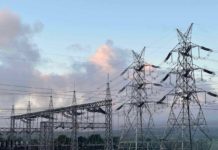
THE Bangko Sentral ng Pilipinas (BSP) said it is looking at implementing caps on the transfers of funds and allowing banks to refuse suspicious withdrawals, as it seeks to implement more measures that would address the ongoing corruption issues on government spending, particularly on infrastructure projects.
According to BSP Governor Eli Remolona Jr., the central bank is studying more measures that would deter the use of funds for illicit activities, after it earlier set a P500,000 maximum for daily cash withdrawals.
“Now we have a threshold on how much cash can be withdrawn, now there will be a threshold on transfers in general — could be cash, could be digital,” he told reporters in a briefing at the BSP headquarters in Manila City on October 9.
He added: “We’re looking at the patterns more carefully in trying to decide what would be the threshold. We’re also looking at other rules that will make it hard for this thing to continue.”
This developed as lawmakers previously questioned the state-led Land Bank of the Philippines (Landbank) for allowing a private contractor to withdraw nearly half a billion pesos in cash within just two days.
The Landbank, for its part, said withdrawals followed standard procedures and were processed only after proper authorization from government agencies.
“These banks, they were not comfortable with releasing the funds that were released, but they couldn’t refuse. These funds were being taken out by people who owned the account. These were accounts owned by contractors, so how do you stop them? The money got into their account from our treasury,” Remolona said.
“As a bank, how can you say no to that? You can’t say ‘Baka corruption ‘yan,’ so now we’re taking the decision out of their hands. We’re going to figure our when the banks can actually refuse, based on suspicion of corruption, and the banks, I think, will appreciate that,” he added.
Remolona said the measures should also apply to government transfers to private individuals, with banks also being required to file suspicious transactions reports for certain thresholds.
Such reports, Remolona said, will review whether the withdrawals or movement of funds is disproportionate to what the depositor does or what the depositor earns.
This comes as the governor noted that the governance issues have impacted investor appetite, which have in turn affected economic growth which could have hit as high as 6% if funds were used properly.
Economic growth was recorded by 5.4% in the first quarter, and at 5.5% in the second quarter. The government’s economic team has set a target of 5.5% to 6.5% for this year.
Several investigations are currently being made on government infrastructure projects, particularly on flood control projects, as President Ferdinand “Bongbong” Marcos Jr. earlier bared that 20% of the total P545-billion budget for such projects went to only 15 contractors. (GMA Intergrated News)







